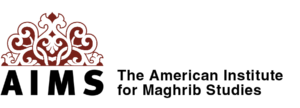Established in 1984, the American Institute for Maghrib Studies (AIMS) is a private, non-profit scholarly organization that facilitates research in North Africa and encourages the exchange of research between American and North African scholars. AIMS administers two overseas research centers (ORCs): in Tunis, Tunisia, the Centre d’Etudes Maghrébines à Tunis (CEMAT); and in Oran, Algeria, the Centre d’Etudes Maghrébines en Algérie (CEMA). In Morocco, AIMS is represented by its affiliate partner, the Tangier American Legation Institute for Moroccan Studies (TALIM) at the Legation, located in the Tangier medina. Each is headed by an American overseas research center director. At home, the AIMS office at the University of Arizona is managed by the U.S. director.
HISTORY: AIMS got its start in the early 1980s when a number of American specialists of North Africa banded together to form the “Maghreb Studies Group.” By 1984, through the encouragement of Professor I. William Zartman at the School of Advanced International Studies of Johns Hopkins University, a larger group of scholars joined to form the embryonic American Institute for Maghrib Studies.
Interest in establishing a research center in the Maghrib led to talks in Tunis with the Ministère de l’Education, Enseignement, et de la Recherche Scientifique. In 1987, CEMAT was born; a binational “Accord de Coopération” was signed on January 14; on August 2 the Tunisian Parliament passed law 87-42 ratifying the Accord. Since that date, CEMAT has welcomed thousands of scholars and maintained a strong public presence in Tunisia through research, conferences, study groups, and archival resources.
Similarly, in Algeria in the early 2000s, the mutual interests of American and Algerian scholars led to the formation of CEMA. The “Protocole de Coopération” between AIMS and the Ministère de l’Enseignement Supérieur et de la Recherche Scientifique was signed in Algiers on September 19, 2004, establishing CEMA in Oran. CEMA has led the way in promoting American and international research in Algeria, creating platforms for cooperation and establishing networks of scholars that focus on a wide variety of subjects in the humanities and social sciences.
In Morocco, as the American Legation passed out of its diplomatic functions and sought a new vocation in the 1970s while remaining a property of the United States Department of State, it, too, became a point of interest for American scholarship. Rescued from oblivion by a devoted group of diplomats who had served in Tangier, as well as those whose lives had been influenced by the city on the Strait and Morocco beyond, including some of the same American scholars responsible for organizing AIMS in the 1980s, the Legation found its way to new life as the Tangier American Legation for Moroccan Studies.
GOVERNANCE: AIMS is governed by its thirteen-member Board of Directors, who are elected for three-year terms. Four board members served as president, vice president, treasurer and secretary of the Institute. The AIMS board meets in conjunction with the annual meetings of the Middle East Studies Association (MESA). Two thirds of the members of the board are drawn from AIMS’ institutional members and one third come from the general membership. All members of AIMS are invited to meet at the AIMS business meeting, which follows the annual board meeting in November.
AIMS is one of the 25 members of the Council of American Overseas Research Centers (CAORC), which is located at the Smithsonian Museum of Natural History in Washington. Founded in 1981, CAORC is a network of American overseas research centers (ORCs) and their U.S.-based parent organizations dedicated to assisting American scholars conducting research on critical issues of U.S. national importance in 29 countries around the world.
ACTIVITY: AIMS convenes academic conferences and workshops in North Africa, holds a yearly dissertation workshop for graduate student members, awards annual book and paper prizes and travel stipends to its members, and funds U.S. scholarly research in the region. The Journal of North African Studies (Taylor & Francis) is published under the auspices of AIMS and the Centre for North African Studies (UK).

